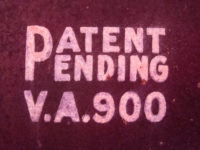As the Industry Committee’s copyright review continues to hear from stakeholders from across the spectrum, a recurring theme has been demands that the government create a new, explicit Internet intermediary injunction that would allow for everything from site blocking to search engine result de-indexing to a ban on payment providers offering services to some sites. For example, earlier this week, the Canadian Chamber of Commerce argued before the Industry Committee:
Blog
CRTC Chair Opens the Door to Weakening Canadian Net Neutrality Rules
The Canadian government’s strong pro-net neutrality position has served as its telecom policy foundation with Prime Minister Justin Trudeau and other government ministers frequently citing Canada’s commitment to the policy. In fact, the current review of broadcast and telecommunications legislation described net neutrality as “a key Government priority given its importance for freedom of expression and the ‘innovation without permission’ ethos that underpins the success of the Internet.”
Yet despite the emphasis on strong net neutrality rules, CRTC Chair Ian Scott used a keynote speech last week to open the door to watering down Canadian net neutrality rules, noting his desire for “flexibility” with the legislation.
Making Sense of the Canadian Digital Tax Debate, Part 6: Ensuring Internet Companies Pay Their Fair Share of Income Tax
The series on digital tax issues concludes with the most conventional tax issue: how to ensure that large corporations pay their fair share of income tax for profits generated in Canada (series posts on digital sales tax, Netflix tax, Internet access taxes, digital device taxes, and tax in support of newspapers). The income tax issue was raised by the NDP earlier this year, who called on the government to ensure that Internet companies pay taxes on profits made in Canada.
Making Sense of the Canadian Digital Tax Debate, Part 5: Income Tax Reform to Support the News Media
The series on digital tax policy issues has touched on various tax measures that target consumers: digital sales tax, Netflix tax, Internet access taxes, and digital device taxes. The series returns with a post examining a business-focused tax proposal, namely lobbying efforts to amend the Income Tax Act to change the rules on advertising deductions in the hope of shifting ad spending to Canadian media organizations.
Taking on the Trolls: Canadian Government To Regulate Patent Demand Letters
The Canadian government’s Bill C-86, its Budget Implementation Act, features several notable provisions designed to curb intellectual property misuse. I posted yesterday on the rejection of “harmonized” statutory damages with the copyright collective system and new limits on the content of notices under the copyright notice-and-notice rules, with the government banning the inclusion of settlement demands or other requests for payment. Internet providers that receive notices that do not comply with the requirements will not be required to forward them to their subscribers. The bill also takes on patent misuse, including rolling out a framework for regulating patent demand letters in an effort to stop patent trolling.











